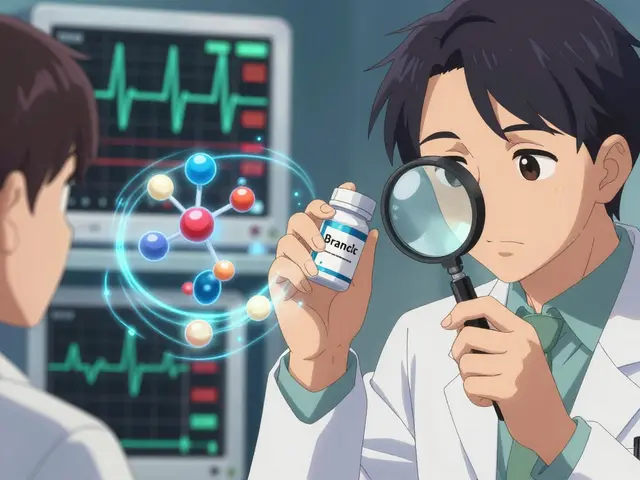Side effects: What to watch for and what to do next
Side effects can be a minor annoyance or a real emergency. You want to know which is which, how to reduce harm, and when to get help. This tag collects plain-talk articles that explain common reactions, safer alternatives, and steps you can take right now.
How to spot and track side effects
Look for sudden changes after starting a drug: nausea, diarrhea, dizziness, rash, swelling, shortness of breath, or fainting. Time matters — reactions that start within hours can be allergic; those that develop over days or weeks may be dose-related or interaction-driven. Keep a short log: drug name, dose, start date, symptoms and when they occur. Snap photos of rashes or swelling; those images are useful for your doctor.
If you take multiple meds, include supplements and OTCs. Interactions often cause side effects. For example, blood pressure meds like carvedilol or metoprolol can cause lightheadedness — see our piece "Carvedilol and Effective Blood Pressure Monitoring" and "Exploring Metoprolol Alternatives for 2025" for practical tips and alternatives.
Steps to reduce harm and find alternatives
First, don’t stop a prescription without asking your provider — except for severe reactions (hives, facial swelling, trouble breathing, chest pain). For milder issues, timing or dose changes often fix the problem. Ask your pharmacist about taking meds with food, at night, or splitting doses.
Antibiotics commonly upset the gut. If antibiotics trigger diarrhea, consider a probiotic with Lactobacillus rhamnosus GG or Saccharomyces boulardii and follow our guide "Best Probiotics for Antibiotic Side Effects & Gut Support" for strains and timing tips. If an antibiotic like Nitrofurantoin isn’t working or causes side effects, our "Nitrofurantoin Alternatives" article lists six options and when they might be better.
Want safer drug choices? We review alternatives for many meds — from antidepressants to heart drugs. Check posts like "Procardia Uses, Side Effects, Dosage, and Patient Tips" or "Top 8 Antibiotics in 2024: Alternatives to Augmentin" to weigh benefits and risks. For conditions needing stronger meds, read patient-focused breakdowns such as "Where to Safely Buy Trimipramine Online: Complete 2025 Guide" and the safety review "henrymeds.com Review: Online Pharmacy Legitimacy, Safety, and Convenience" before ordering online.
Finally, report serious reactions. In the U.S. you can use FDA MedWatch; many countries have similar systems. Sharing your experience with your prescriber and keeping a simple record helps you and others. If you want targeted reading, start with the posts on this tag — each one gives concrete steps, real-world tips, and clear red flags to watch for.

Myambutol Explained: Dosage, Side Effects, and Key Safety Tips
Learn what Myambutol is, how to take it correctly, common side effects, and safety tips for TB patients in a clear, easy‑to‑follow guide.

Accutane: The Real Story on Isotretinoin for Acne Relief
Accutane, also known as isotretinoin, isn't just another acne pill—it's often the last resort for those battling stubborn breakouts that don't budge. This article cuts through the haze with honest information about how Accutane works, why it's so powerful, who should consider it, what the notorious side effects are, and how you can make a tough treatment a bit less harsh. Whether you're on the fence or just curious, dive in for real facts, direct advice, and stories that actually make sense.

Cipro: The Truth About Ciprofloxacin Uses, Side Effects, and Risks
Get the real story on Cipro (ciprofloxacin): what it treats, how it works, what side effects you should watch for, and why doctors are sometimes hesitant to prescribe it. This in-depth article covers the must-know facts, practical advice, and little-known risks, so you go beyond the standard warnings. Great info for anyone who's ever wondered if this strong antibiotic is truly the right choice.

How to manage potential betahistine side effects
Managing potential betahistine side effects is important for ensuring our comfort and well-being while taking this medication. To minimize these side effects, we should always follow the prescribed dosage and consult our doctor if we experience any persistent or severe reactions. Drinking plenty of water and maintaining a balanced diet may also help alleviate some of the common side effects, like stomach issues. Additionally, getting adequate rest and avoiding alcohol can further prevent worsening of side effects. Remember, if we ever feel concerned about any side effect, it's best to reach out to a healthcare professional for guidance.




